|
Millennials and your bottom line: Keeping a di erent generation on track by Gene Ference i When managing Millennials, it is critical that you understand what drives them and how to maximize their ROI to your organization, writes Gene Ference of Ference Leadership and Strategy. At the same time, you need to get them to buy in to your goals – and help them develop. Gene’s article helpfully sets out a number of practical tips and suggestions for maximizing your e ectiveness as a leader with Millennials on your team. |
|
How important are Millennials to your business? To running your hotel e ectively and e iciently? A great deal, according to many. But Millennials are di erent from past generations. And your challenge is to keeping them on track. If you don’t think it through, you may be losing a valuable asset. An asset that could mean the di erence between peak performance with optimum profits and average performance with ordinary accomplishments. Who are these Millennials? More and more is being written about them. Born between 1980 and 2000, Millennials have grown up experiencing times of rapid change, globalization and economic turmoil. The average Millennial will have 30 unique jobs or roles in their lifetime of work. As one of the largest generations in history, Millennials are poised to reshape economies and the way business is conducted. To say reshape is no understatement. In the United States and Canada alone, Millennials are estimated to be nearly one hundred million in number, with smaller but significant populations in Europe, the Middle East and Asia. And Millennials are now a significant segment of the hospitality industry. That is why it is critical that you understand what drives them and how to maximize their ROI to your organization while concurrently getting them to buy in to your goals and help them develop. As a group, Millennials have characteristically been treated as special and important. They comprise a generation marked with celebrating events, abundant praise and an a inity To a large extent, technology shapes how Millennials conduct their lives. On the job, they are able to access information instantly whether it be job related or attending to personal needs. They constantly reach out to peers and others for instant communications. Millennials find social media, texting and playing games on their phones hard to resist. However, as technology is available at all times, employee training in the proper use of social media and mobile platforms for job-related communications will always be necessary. For everyone, today’s hi-tech devices can provide 24/7 continuous “networking”; the challenge is to what extent do employees use these capabilities directly to enhance work performance? On the job, Millennials believe multi-tasking saves time, but many fail to realize the distractions from on-the-job responsibilities can lead to sub- standard performance. Sometimes described as entitled, self-obsessed narcissists with unrealistic expectations of working life, they have also been described in positive ways as confident, self-determined, self-directed, self-expressive, open to new ideas and overtly passionate about being connected with fellow team members. They have a deep-seated desire to have control over their tasks, direct their own lives, develop their skills, be accountable and live life with purpose – o en for a cause larger than themselves. All this begs the need for providing organizational direction, beginning with clear understandings of vision, mission, core values, guiding management principles and day-to-day leadership expectations. For general managers and executive teams, Millennials present a new challenge: Just how do you keep Millennials on track? 26 HOTEL Yearbook 2016 special edition on Talent Development |
1. Physical attributes: work environments that Millennials expect
Design o ice space to promote teamwork. Millennials enjoy opportunities for collaboration and sharing ideas with colleagues. Team projects accomplished through small group meetings encourage relationship bonding and building of new friendships.
Provide for healthy sta dining. Millennials eat smarter than previous generations. No longer are sta dining rooms “canteens”. Millennials expect and seek wholesome healthy meals to include salads, energy drinks and a varied menu with plenty of fresh vegetables. The selection of foods should be enticing and engaging and the environment clean and welcoming. Physical amenities should be available such as a large flat screen TV with a channel featuring average occupancy, VIPs and daily events. To ensure current communications, provide daily up-dates with guest comments, letters and other relevant information.
Encourage wellness. Millennials look for daily opportunities to pursue personal wellness programs. Provide fitness and health related programs and where possible o er gym facilities for exercise routines and encourage the use of hiking and bike trails in o hours.
2. Satisfaction factors: the degree to which employees achieve total satisfaction in their jobs
Seek motivational balance. Termed extrinsic motivators, comprehensive programs to include adequate and fair
wages, salaries, and benefits are expected in today’s societies. Unfortunately, this baseline does not serve to motivate, at least in the long run; however, these elements can demotivate when not present. Without a healthy baseline, providing for further motivations is complicated and problematic.
Gene Ference, Ph.D. has developed Deliberate Cultures in the luxury hospitality industry since 1980. He is President of Ference Leadership and Strategy & Center for Survey Research – a global organizational development company – and is an active member of the International Society of Hospitality Consultants (ISHC).
Vital to motivation are the intrinsic values of the task itself – fostering learning, assisting co-workers, delighting customers and developing pride, team a iliation and community. Providing continuous positive feedback is expected by Millennials, and communication of this type has a direct e ect on their intrinsic motivations.
Encourage Millennials to proactively cultivate their own resources to aid them in closing performance gaps. Internet reference-searches and online interactive programs can help them put their best professional self forward. Furthermore, consider suggesting a fellow employee who could serve as a mentor providing guidance on work-related issues and personal challenges.
Ensure on-the-job variety. Every day is a di erent day, bringing new challenges. Competing with oneself to do better than yesterday is an excellent motivational mantra in itself. Help Millennials by continuously revisiting standards and follow-
up by establishing both daily and weekly goals that are measurable. The defining factors in service excellence are the degrees to which each employee engages each guest in great service and what each guest perceives their experience to be. Creating a valued experience o en means the degree to which a guest is surprised and delighted.
Millennials seek a balance of personal life and career advancement. They believe in working hard as well as playing hard, and a culture that appreciates work-life balance very much appeals to them. They expect a more flexible work environment than previous generations coupled with a “fun” place in which to work.
?
www.hotel-yearbook.com
27
MILLENNIALS
Align infrastructure. Ensure vision, mission, values and standards are all aligned. Teams pay a steep price for not keeping the hotel’s guest promise in the forefront of everything they do. Ensuring continuous alignment of purpose in the eyes of every employee extends success into the future rather than just tomorrow or the present quarter. Remember: what employees believe shapes what they achieve.
Provide for gratification and recognition. Reinforce how important their position is and how they make a valuable contribution to the hotel and guest experience. Recognize their accomplishments among their coworkers. Reward programs demonstrate recognition, encourage Millennials to stay job focused, and increase their job satisfaction. Millennials seek opportunities for career development and advancement.
Communicate supported causes. Millennials want to work for
a company that supports various charitable initiatives. They appreciate being informed about events that the hotel supports outside the work place, such as campaigns and benefit programs, charitable foundation funding and volunteer work. Communicate o en and clearly.
3. Engagement drivers: the degree to which employees are motivated to go above-and-beyond their prescribed job responsibilities by advocating continuous commitment to connecting interpersonally with others.
Be transparent and earn trust. Transparency is a must. Crystal clear, continuous communications regarding performance expectations are expected by Millennials. Feedback highlighting constructive specifics regarding strengths and shortcomings is appreciated. Short, performance-feedback sessions conducted on a weekly basis are valued as Millennials seek continuous opportunities for growth and development. This enables them to see beyond the horizon and plan for long-range career opportunities. Checking that all sta members walk-the-talk with actions consistent with words will certainly increase transparency and levels of trust.
Review engagement fundamentals. Several business research studies reveal that more than 50% of employees are not engaged at work and nearly 20% are actively disengaged. Remember: when expectations exceed employees’ capabilities, the result is anxiety; when expectations fall short of their capabilities, the result is boredom. Make sure that Millennials are not demotivated by false or unrealistic expectations.
Become an employer of choice. This makes it easier to attract new talent and hire the right employees. The next full-time
task is to take care of them and be careful not to demoralize! E ective leaders become engagement advocates, constantly promoting greater commitment to performance excellence. Additional information about engagement advocates is available on FerenceLeadershipAndStrategy.com which features an article published on Hotel News Now entitled Empower Luxury-Setting Advocates for Success.
Conduct employee surveys. Before administration of the survey, reinforce the message that all surveys are anonymous and confidential. A er the survey, provide all employees with feedback on results. Millennials expect to be kept in the loop with opportunities for action planning to improve performance shortcomings. No feedback, or silence, means bad news. Moreover, without communicating results, Millennials lose their enthusiasm when it is time for the next survey.
Establish a learning environment. Learning should be an everyday event. All employees in direct service-contact positions have continuous opportunities to “read” the guest, learn personality types and “wow” them by going beyond expectations. Managers and supervisors can stimulate Millennial’s mindsets by invigorating a conversation with leading questions, engaging in focused dialogue and facilitating the exchange by making it easy for them to speak up and express themselves when they have a problem.
Insightful learning exercises:
a. A simple exercise that increases awareness is to hand out blank 3 x 5 cards in a meeting. Have employees write down, What is our hotel’s purpose? Collect the cards and read them aloud. What they tell you may surprise you as well as others.
b. On a blank sheet of paper, have meeting attendees
list, in their opinion, what key behaviors could further develop professional potential within their team? Collect the responses, share the results and have a productive discussion.
c. In a meeting, have employees contribute specific stories about how a guest’s experience was improved. This can also be extended to how employees helped each other in challenging situations. Make sure everyone involved receives a sincere and heartfelt thank you. Millennials love to receive recognition, both in a group and independently.
Growth for a hotel is all about delighting guests with their experience, followed by repeat referrals and repeat business. Internally, the ultimate goal, of course, is to help each employee reach their ultimate potential. Understanding the Millennial generation is at the heart of future success. Like Star Wars, Millennials need to “feel-the-force” through their own values, beliefs and attitudes. Today seeing variances in work styles
of di erent generations is not enough. Rather, managing employee expectations and organizational culture to leverage the best of all age groups will benefit your hotel and employees to be the most productive in achieving levels of sustainable peak performance.
?

